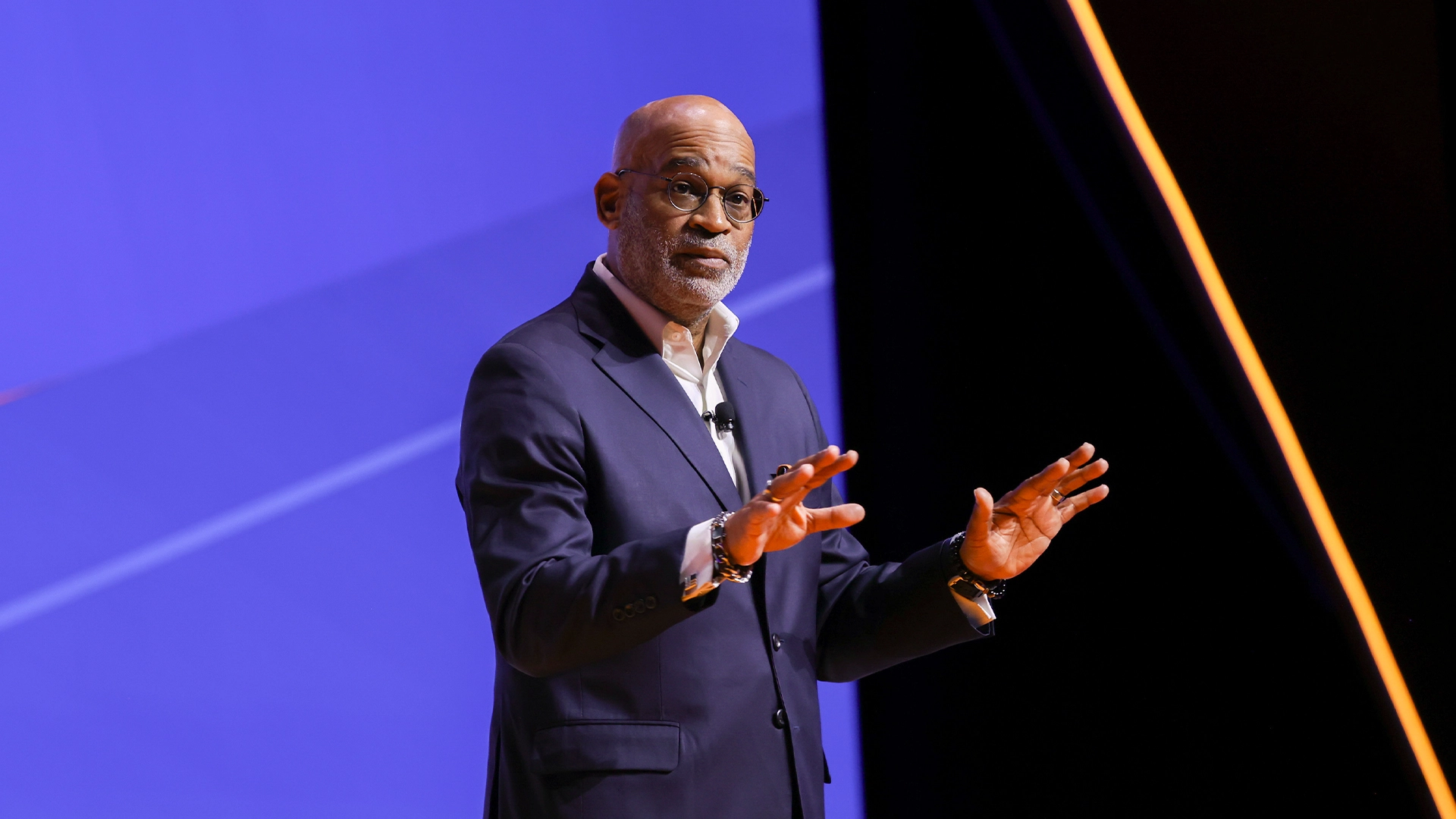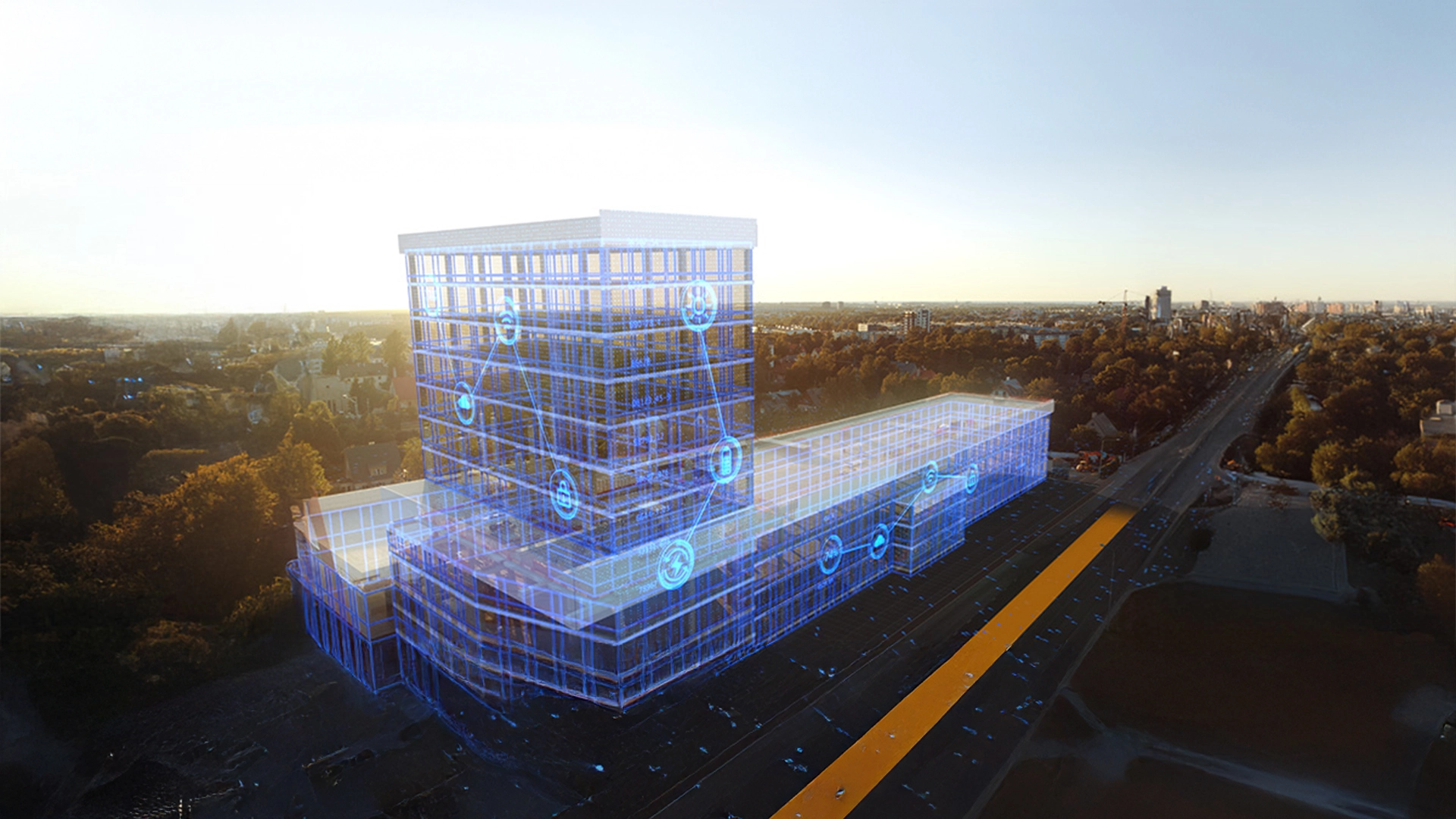AI and the client experience: Enhancing engagement, satisfaction, and comfort
Artificial intelligence (AI) has quickly moved from abstract promise to tangible impact in facilities management. Beyond optimizing maintenance schedules or energy consumption, AI is now reshaping the human experience of facilities: how clients interact with providers, how occupants engage with their environments, and how comfort is delivered at scale. As Bob Clarke highlights, success in these areas comes down to three key themes: making services more personal, more responsive, and more efficient. Watch the interview below.
For more AI insights, watch the full webinar: AI and the next era of facility care.
Personalizing client engagement
At its best, AI transforms the way facility teams interact with clients. Predictive analytics, smart reporting, and conversational AI tools such as chatbots enable more personalized engagement and responsiveness. Instead of waiting for issues to arise, facility leaders can anticipate client needs, provide proactive updates, and tailor communications to specific environments.
This personalization builds trust and demonstrates value. Workplace experience apps, for example, allow tenants to book rooms, order services, or navigate buildings seamlessly. The benefit is a frictionless client journey where communication flows easily between facilities teams and the people they serve.
Elevating occupant satisfaction
For occupants, satisfaction is rooted in how a space feels and functions. AI supports environmental personalization, adjusting temperature, lighting, and air quality based on user preferences. Imagine a CEO walking into the office and having the workspace automatically adjust to their ideal settings. Beyond comfort, service automation and feedback loops allow occupants to voice concerns and see them addressed quickly, further enhancing a sense of care.
IoT integration adds another layer of intelligence. By monitoring conditions such as humidity, lighting, or air quality, AI systems can maintain optimal environments with little to no manual input. Even noise control can be addressed with AI-driven solutions, ensuring spaces remain productive and comfortable.
Redefining comfort through smart systems
Comfort and satisfaction are closely intertwined, and AI extends facility managers’ ability to deliver both. By pairing IoT data with machine learning, systems can dynamically optimize HVAC, lighting, and energy use. The result: occupants benefit from consistently balanced environments, while organizations gain cost efficiency. Automated workflows and predictive maintenance further ensure comfort is uninterrupted by unexpected equipment failures.
Proven use cases in client support
The industry is already seeing successful AI deployments that underscore these benefits:
- Workplace experience apps streamline navigation, booking, and service requests, creating an elevated client experience.
- Intelligent space planning tools optimize layouts, resolve issues faster, and deliver round-the-clock support.
- Occupancy and environmental sensors enable real-time monitoring of assets and conditions, improving comfort and efficiency.
- Predictive maintenance and automated workflows reduce downtime and ensure smooth operations.
These examples highlight how AI-driven tools can deliver both immediate gains (faster resolutions, lower costs) and long-term improvements (better client retention, higher occupant satisfaction).
Strengthening relationships with strategic clients
When it comes to large, strategic clients, AI adds a new dimension of insight and service quality. Facility leaders can deploy dashboards that track use patterns, analyze client sentiment, and provide predictive insights. For example:
- Predictive services: anticipating issues before they occur and preventing repeat incidents.
- Smart SLA monitoring: ensuring service-level agreements are consistently met.
- Portfolio optimization and sustainability tracking: using data to inform cost forecasting and ESG goals.
- Tailored engagement plans: leveraging account health scoring and AI-driven insights to deepen relationships.
Together, these capabilities move facility management from reactive service provider to strategic partner, delivering proactive value and strengthening client retention.
Efficiency as the common thread
Whether it is personalization for clients, comfort for occupants, or strategic insights for key accounts, efficiency runs through every AI application. By automating routine processes, reducing downtime, and optimizing resources, AI enables facility leaders to focus more on innovation and client partnership rather than constant problem-solving.
A human-centric future for AI in facilities
The ultimate goal of AI in facilities is not simply automation—it is creating environments that are more responsive to human needs. By combining predictive intelligence with personalization, facility teams can deliver experiences that foster satisfaction, loyalty, and trust. As Clarke emphasizes, the real impact of AI lies in its ability to make operations more personal, more responsive, and more efficient—qualities that will define the next generation of facility management.






